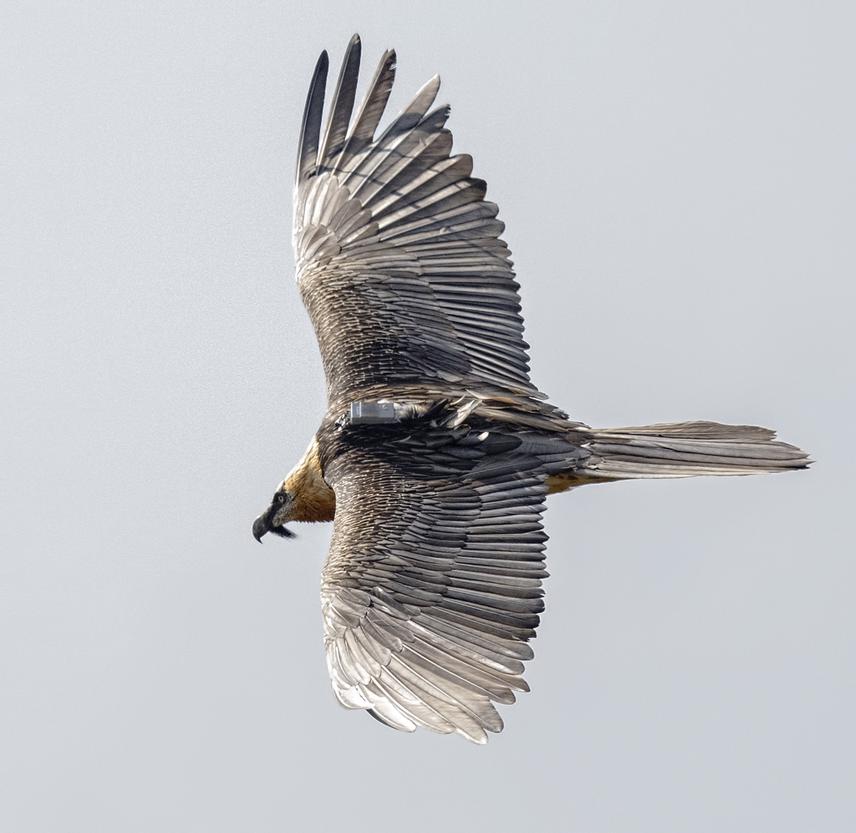Articles featurig the project.
Raptors of Nepal Blogspot -
Traineeship opportunity on Nepal Raptor Conservation Program (for migration count of raptors)
25 Jan 2016 Annapurna Conservation Area, Nepal, Indian Sub-continent Birds
Habitat, Status and Conservation of Red Panda (Ailurus fulgens) in Dhorpatan Hunting Reserve, Nepal
Raptor Migration Study and Conservation Camps Along the Migration Corridor and Wintering Ground in Nepal
Identification and Mitigation of the Main Threats Impacting Threatened Bearded Vultures in their Core Range of Nepal
The aim of this project is to better understand ecology, movements and threats to Bearded Vulture and educate local peoples for its conservation.

Bearded Vulture (Durga) flying with transmitter. © Robert DeCandido
The Bearded Vulture (Gypaetus barbatus) is a globally “Near Threatened” (BirdLife International 2014) charismatic mega avian fauna of the mountainous regions. Based on continue population decline and its small population size (<500 individuals) it is listed as a “Vulnerable” species in Nepal (BCN and DNPWC, 2011). This species has a patchy distribution across the Palearctic, Afrotropicals and Indo-Malayan region. Global population has estimated between 1300 to 6700 mature individuals with an average 25 - 29% decline over last three generations (BirdLife International 2015). However at Upper Mustang of Annapurna it was observed 80% population declines between 2002 to 2008 (Acharya et al 2010), in South Africa declines in territory occupancy between 32 -51%, breeding distribution by 27% and population density by 20% over the last 52 years (Kruger et al. 2014) and 70% declines in entire Africa (Ogada et al. 2015).
Several studies have been conducted in European and African range using satellite telemetry to understand its movements, spatial ecology and threats however little is known about the Himalayan population. Urgent study is required to better understand the driving forces causing its decline and also need to establish appropriate conservation actions. Therefore based on the study of its spatial ecology and movements using GPS telemetry (Wild Trackers - WT-300) we plan to find out the factors causing population decline and also to conduct several educational programmes for local peoples in the Annapurna range of Nepal. Results of this study is expected to have an important contribution on better understand its spatial ecology, habitat, causes of population decline and also to minimize the threats to Bearded Vulture by local anthropogenic activities.
Articles featurig the project.
Raptors of Nepal Blogspot -
Traineeship opportunity on Nepal Raptor Conservation Program (for migration count of raptors)